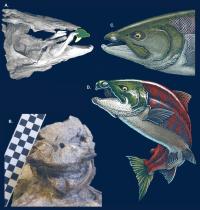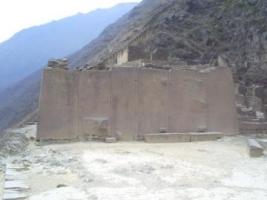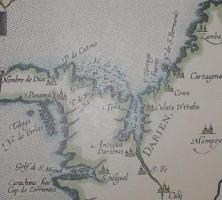Copy Link
Add to Bookmark
Report
Information Communication Supply Volume 1 Issue 10

################ ################### #########
### ## ## ## ##
### ## ##
### ## ##
### ## ####
### ## ####
### ## ##
### ## ##
### ## ## ## ##
################ ################## #########
I n f o r m a t i o n, C o m m u n i c a t i o n, S u p p l y
E L E C T R O Z I N E
Established in 1993 by Deva Winblood
Information Communication Supply 5/17/94 Vol.1: Issue 10-1
Email To: ORG_ZINE@WSC.COLORADO.EDU
E D I T O R S: Local Alias: Email: ICS Positions:
============== ============ ====== ==============
Jeremy Bek rApIeR STU521279258 Technical Director,Layout
Steven Peterson Rufus Firefly STU388801940 Editor, Writer
Russel Hutchinson Burnout Writer, Subscriptions,
Editing
Jason Manczur GReY KnYgHT STU523356717 Writer,Poet,Editing
Deva Winblood MeTaL MaSTeR, ADP_DEVA Ask Deva, Tales of the
Ephemeral Unknown, Editing
Presence
George Sibley MAC_FAC FAC_SIBLEY Editing, Supervisor
_________________________________________
/=========================================\
|"Art helps us accept the human condition; |
| technology changes it." |
\ - D.B. Smith /
\***************************************/
+++++++++++++++++++++++++++++++++++++++
_____________________________________________________________________________
/ \
| ICS is an Electrozine distributed by students of Western State |
| College in Gunnison, Colorado. We are here to gather information about |
| topics that are important to us all as human beings. If you would like |
| to send in a submission please type it into an ASCII format and mail it |
| to us. We operate on the assumption that if you mail us something you |
| want it to be published. We will do our best to make sure it is |
| distributed and will always inform you when or if it is used. |
| See the end of this issue for submission information. |
\_____________________________________________________________________________/
REDISTRIBUTION: If any part of this issue is copied or used elsewhere
you must give credit to the author and indicate that the information
came from ICS Electrozine ORG_ZINE@WSC.COLORADO.EDU.
DISCLAIMER: The views represented herein do not necessarily represent the
views of the editors of ICS. Contributors to ICS assume all responsibility
for ensuring that articles/submissions are not violating copyright laws.
|\__________________________________________________/|
| \ / |
| \ T A B L E O F C O N T E N T S / |
| / \ |
| /________________________________________________\ |
|/ \|
| Included in the table of contents you will see |
| some generic symbols to help you in making your |
| decisions on whether an article is something that |
| may use ideas, and/or language that could be |
| offensive to some. S = Sexual Content |
| AL = Adult Language V = Violence O = Opinions |
|____________________________________________________|
|----------------------------------------------------|
| 1) First Word .................... Steven Peterson |
| 2) Death of a Nation (Pt.1) ........ Jason Manzcur |
| 3) Computer-Mediated |
| Communication (Pt.2) ......... Steven Peterson |
| 4) Introverted Psyche .................. Damian |
| 5) Profit Margin ................. Steven Peterson |
------------------------------------------------------
################################################################################
^^^^^^^^^^^^^^^^^^^^^^^^^^^^^^^^^^^^^^^^^^^^^^^^^^^^^^^^^^^^^^^^^^^^^^^^^^^^^^^^
-------------------------------------
\ First Word /
\ by /
\ Steven Peterson /
-------------------------------
Well, it does get lonely in the editor's chair toward the end of the
semester. As you can tell from the table of contents, most of this issue
is the product of my lone voice; yea, and I went forth into cyberspace,
untethered and alone ... way too melodramatic. Sorry. Anyway, In this
issue: Jason tries on the epic form for his poetic vision, I bring you
the second part of my series on CMC (electronic brainstorming software,
this time), Damian Riddle, a new contributor to ICS (local) offers another
poem, and your humble editor winds up the frag with a short story.
The story was fun to write - drop me a short note if the premise or
the protagonist seems familiar. I'm interested in finding out if this is
one of those "cultural" stories which reaches many people. I guess it's
all part of developing as a writer, this search for the culturally
relevant stories that need to be told. But, hey, it's supposed to be
entertaining first and foremost, so enjoy.
We'll be back in a couple weeks with the last issue of this term.
we plan on producing two issues (or four frags) over the summer. So, if
you'll be offline during break or away or need us to suspend delivery
for a while, let us know.
^^^^^^^^^^^^^^^^^^^^^^^^^^^^^^^^^^^^^^^^^^^^^^^^^^^^^^^^^^^^^^^^^^^^^^^^^^^^^^^^
++++++++++++++++++++++++++++++++++++++++++++++++++++++++++++++++++++++++++++++++
################################################################################
DEATH OF A NATION (Part 1)
It has begun!
The world has ended!
Lest, of course,
The rift can be mended.
They have started arriving
Through the hole they have made
In the fabric of space
When their master, them bade.
The invaders are here!
I fret for the ones
Who have not foreseen
That thus the end comes.
Death has little meaning
For these abhorrations.
They merely desire
The end of all nations.
They arrive by the hundreds,
The thousands, the millions,
And as they arrive,
They build their pavilions,
From which they can strike,
North, East, South, and West.
The human resistance
Will prove who is best!
I will be the leader,
As I know their plan.
If any can stop them,
The resistance can.
To all the people,
Great people and small,
I give you this message;
"Please heed our call"!
We will need all
The support we can get!
We will not give up
On victory yet!
The first attack!
It happened at eight.
These creatures
Are taught only to hate!
Machine gun fire
Filled up the night.
The people around me
Tried to scream out their fright.
We started resisting,
And killed some of them, too.
Though they were all dead,
We knew we still weren't through.
More of them came
And began to slaughter.
I heard my friend scream
As they killed her daughter.
They arrived en masse
That they could kill more.
Some began to revel
Insane from the gore!
You could see thousands
In a grenade's light.
The people retreated
From Death's unholy rite!
We will be triumphant,
I am sure of that now.
There are few of us left,
But we will win somehow!
Jason Manczur
################################################################################
<><><><><><><><><><><><><><><><><><><><><><><><><><><><><><><><><><><><><><><><>
~~~~~~~~~~~~~~~~~~~~~~~~~~~~~~~~~~~~~~~~~~~~~~~~~~~~~~~~~~~~~~~~~~~~~~~~~~~~~~~~
-------------------------------------
\ Computer-Mediated Communication /
\ Part 2 /
\-------------------------------/
\ by /
\ Steven Peterson /
---------------------------
In the first part of this series, I examined some of the initial
Computer-Mediated Communication (CMC) research conducted by Kiesler et.al.
during the 1980s. From that work, I take five central questions which in-
variably surface in subsequent research examining other, newer forms of CMC.
These questions are:
--------------------------------------------------------
| Five Aspects of computer-mediated communication (CMC)|
| 1) Time/Information processing pressures |
| 2) Absence of regulating feedback |
| 3) Dramaturgical weakness |
| 4) Few status/position cues |
| 5) Depersonalization of social anonymity |
|______________________________________________________|
In this, the second part of this series, I will examine recent research
on electronic brainstorming software (EBS). Most of you are probably familiar
with the traditional form of collaborative brainstorming which occurs in
business and education. The basic idea is to gather people in a room and
generate ideas in a free-form manner. Driven by a human sense of synergy,
the traditional face-to-face form remains popular despite empirical studies
that debunk claims of its efficacy (Gallupe 28).
Recent innovations in software development have brought the idea of EBS
into the hands of corporate America in the form of programs such as Group-
systems and Teamfocus. EBSs take the original brainstorming concept and bring
it to LANs, dividing the process into its constituent parts.
The first step in the process - generating ideas - takes advantage of
anonymous keyboarding in order to encourage participants to share ideas they
probably wouldn't voice in a face-to-face setting. Aspects 2 and 4 are turned
into advantages at this stage - without regulating feedback or status cues,
inhibitions fade and more ideas are expressed. In a comparative study involving
over eight-hundred people, EBS groups "have consistently been more productive
than traditional brainstorming groups ... productivity advantages have ranged
from 25 to 50 percent for four person groups and to nearly 200 percent for
twelve person groups" (30). The same study notes "the advantages of parallel
entry, anonymity, and, no doubt, novelty serve to make electronic brain-
storming a much more productive way to brainstorm, particularly among larger
groups"(30). While these programs overcome traditional problems of inhibition
and "status-weighting", they lead to problems in the editing phase.
Time and information processing problems mark the editing phase of EBS.
Eliminating redundant ideas is described as the "grueling part." Anticipating
such a problem, some of the available programs (in this case Groupsytems)
offer a tool which enables users to "create his or her own categories for the
ideas that have been generated. By scanning all the ideas generated, each group
member can assign each idea to any number of categories. This process makes it
easier for the group to identify similar ideas and combine or discard those
that are redundant" (31). While sorting tools may speed the process up, asking
participants to avoid obvious or trite ideas would seem to be a good idea.
The next phase in the process, evaluation, also presents some problems.
Traditionally, status and position determine the relative weight of an
individual's influence. Recognizing the needs of corporate users, software
developers have incorporated "rank-order voting" features to prioritize ideas
according to consensus, or, in some cases, by caveat of management. Although
weighted voting may streamline the process, "the anonymous evaluation of ideas
is an important feature of EBS technology. We have all had the experience of
seeing ideas adopted because they were advocated by powerful individuals.
Once this happens, a groupthink process can produce unanimity on what some
(privately) believe to be a bad idea" (32). Expanding on this theme, the
authors note that "all the EBS procedures are designed to equalize power
within the group ... when this [differential weighting] is done - and we
acknowledge our misgivings about violating the power equalization feature
of EBS - it should be made explicit that not everyone is equal in the
group and why" (32). It is easy to see the resistance such equalization
will engender in a hierarchical, profit-driven, competitive arena.
Any resistance to the EBS process will likely surface in the next phase:
implementing the ideas generated in a EBS session. Most of these programs
offer a "window" style feature that allows individuals to enter steps used to
define a "plan-of-action" for any given idea. If the plans are followed,
employees seem to feel their efforts are worthwhile, and psychologically, they
are likely to feel that "equalization of power" EBS offers. On the other hand,
if management manipulates resources and funding to determine a course of
action, employees may feel cheated and used at some level.
As with any new technology, the potential for abuse conditions the
possibilities for progress. Generalizing from their research, the authors
of this study provide two short lists of advantages and disadvantages of EBS:
Advantages Disadvantages
*Parallel entry of ideas *May be oversold as cure-all
*Anonymity *Requires keyboarding skills
*More good ideas generated *Loss of power for senior people
*Higher satisfaction with process *Loss of social interaction
*Large groups can be effective *Overload during idea editing
*Can be used by both face-to- *Cost of facilities and
face and dispersed groups software
*Records ideas for future *Not all topics are suitable
(34) (35)
These lists give a concise view of the surface features of the medium;
however, the deeper issues of control, office politics, and credit for
"intellectual property" will most likely determine if this sort of system
actually gets adopted by a business organization.
The "organization man" moving up a ladder of success in the traditional
capitalistic sort of corporation will probably view the anonymity inherent
to the EBS process threatening. As individual "scoring" systems give way to
"team-based" measures of performance, the Horatio Nelson model of success
undergoes a transformation from one of individualistic endeavor to one of
collective, or team success. In cultures which already use team-oriented
tactics to achieve their goals (e.g. Japan), EBS programs can be adopted
with a minimum of resistance. In highly individualistic cultures (such as
the U.S.), a "new order" of business practices must evolve in order for
corporations to reap the potential benefits of EBS-style programs.
The basic purpose of CMC software is to exchange knowledge. Corporate
America's interest in the medium reflects the growing role knowledge often
plays in defining economic realities, good or bad. In a recent interview,
Peter Drucker (known as the father of modern corporate management) stated
"international economic theory is obsolete. The traditional factors of
production - land, labor, and capital - are becoming restraints rather than
driving forces. Knowledge is becoming the one critical factor of production.
It has two incarnations: knowledge applied to existing processes, services,
and products is productivity; knowledge applied to the new is innovation"
(Drucker 80). Citing numerous examples of efficiency gains in corporate
America, Drucker identifies a strong link between business success and the
application of knowledge in design processes. It seems the dual pressures of
international competition and mass marketing are forcing national and multi-
national corporations to react to the growing sophistication of their business
rivals and their customers.
Determining the course of that reaction may prove to be the defining
moment for many workers in the American economy. Systems such as EBS offer
one possible method of cultivating the "knowledge base" that will give
corporations a competitive edge in the emerging "post-capitalist" economy of
the 21st century.
In the third installment, I will examine Group Decision Software Systems
(GDSS), another form of CMC which may challenge the existing forms of corporate
management. Stay Tuned ...
_______________________________________________________________________________
Works Cited
Drucker, Peter. Interview. "Post-Industrial Society." With Peter
Schwartz. *WIRED*. Vol.1, No.3, July/August, 1993. 80-83.
Gallupe, R. Brent, and William Cooper. "Brainstorming Electronically."
*Sloan Management Review*. Vol.35, No.1, Fall, 1993. 27-36.
Kiesler, Sara, et.al. "Social Psychological Aspects of Computer-Mediated
Communication." *American Psychologist*. Vol.39, No.10, Oct. 1984.
1123-1134.
________________________________________________________________________________
################################################################################
^^^^^^^^^^^^^^^^^^^^^^^^^^^^^^^^^^^^^^^^^^^^^^^^^^^^^^^^^^^^^^^^^^^^^^^^^^^^^^^^
Introverted Psyche
I frivolously disdain my outward appearence,
Frequently subsiding to the injections of eternal thought.
Crumbling slowly, logically at first, then wild,
Stumbling, bumbling out of reality.
My first reaction was no - no way!
Then I accepted the tedious chore and
Threw - it - away.
You know what I don't care
peace of mind is satisfaction enough.
Life is cruel and I deserve it.
I will strive to be levelheaded and
full of meaning. Meaning is substance
constant, relative thoughts, those
which make us whole. Those that live and bleed.
The beast is inside us, exorcise the beast and you're in.
Only excessive force binds my style.
I realize I extrude, and
I retort inwardly, instantly.
*Damian*
^^^^^^^^^^^^^^^^^^^^^^^^^^^^^^^^^^^^^^^^^^^^^^^^^^^^^^^^^^^^^^^^^^^^^^^^^^^^^^^^
********************************************************************************
++++++++++++++++++++++++++++++++++++++++++++++++++++++++++++++++++++++++++++
^^^^^^^^^^^^^^^^^^^^^^^^^^^^^^^^^^^^^^^^^^^^^^^^^^^^^^^^^^^^^^^^^^^^
__________________
| PROFIT MARGIN |
| |
| by |
| ______________ |
/ Steven Peterson \
--------------------
Coffee and cigarettes: as Ron reached for his Camels, he scorched his
tongue on the icky-sweet flavored coffee his secretary had just brewed.
Hot cherry and white chocolate flooded his throat as he tried to choke down
the viscous fluid; his eyes began to water and his hands started to shake.
Ron coughed and sent a perfect stream of java splashing down: a direct hit,
right into the middle of his keyboard. Cursing silently, he stabbed the
intercom button:
--Marcy ... could you come here, my keyboard is down again.
--I'll bring the spare ...
Ron set down his mug and picked up the sodden keyboard. He began to
shake the little brown droplets out onto the carpet, hoping to cover his
slop before Marcy arrived. She'd been after him for months to get used to
his new "secretary," and this was the third unit he'd trashed this month.
It was starting to look deliberate, and the man upstairs had his "quota"
of time "on-line" to measure, quantify, digitize, whatever they did with
the little blips when Ron was done with them. He was glaring at the screen
when Marcy entered:
--What happened, Ron ... ashes or fluids?
She had the spare keyboard tucked under one arm; Ron thought it looked
like some sort of new appendage, perhaps the wing she was using to fly away.
--Coffee again, Marcy. That thing's a damn magnet.
--Well, scoot out of the way, and I'll have you back up again in just a
minute. Really, Ron ... you'd better get used to it being there.
--Yeah, I know. Say, could you bring up those new sales forms for me?
I keep getting lost in the windows.
Marcy began to trace the cord to the back of the machine. Her movements
had a confidence that Ron had never really noticed before. Ron started to
thumb through his ancient rolodex, looking for his first calls of the day.
Marcy stood up, tapped a few keys, and fixed Ron with a cold look:
--There you go. Now which form did you want?
--Carlson's little gem. It's called sp or spr94 or something.
--O.K., watch ...
Marcy grabbed the mouse and began pointing and clicking.
--First, get out of this directory ...
As Marcy droned on, throwing acronyms and clipped references at Ron,
he thought back to his first regional spring sales campaign. Marcy had just
started working for him, so fresh out of high school he could smell the
bubblegum on her breath. He ran her like a dog, another order damn near
every hour. And she had kept coming back for more. He missed that loyalty,
those trusting quiet eyes.
--O.K., now you're in the dbase ...
God, he had power back then. Ron had owned his own region, sales were
booming, and a man's personal secretary worked for him, not some damn machine.
Marcy was staring at him, waiting:
--Yeah, that's the one. How do I send them again?
--Just like anything else, Ron, hit Control-Z and Enter.
Marcy glanced out the door, then back at Ron.
--Anything else?
--Um, yeah, if you could get me the southeast Indiana figures from last
year, I could get on the horn and maybe accomplish something.
--I'll forward them right away.
--No, no ... on paper, Marcy. I need the whole screen.
--O.K., Ron, let me fire up the printer.
Ron watched Marcy make her way out the door, quietly lusting after the
Old Marcy, the girl he could manipulate. It had been years, but Ron still
remembered the soft tenderness of his old conquest. Her quiet ease with
numbers, with so-called logic, had changed everything. At first, that skill
had made her valuable (Ron hated math); ultimately, it gave her the upper hand.
Carlson was looking to promote her right out of the building; West Coast
was looking for bright minds ...
Ron fired up a Camel and reached for his dog-eared rolodex. Flipping
through, he stopped on a new one: fresh meat. Ron picked up the phone and
started dialing, his fingers stabbing the buttons as he rifled through a pile
of paper. In the background, a printer began its furious ticking and whirling.
* * *
After a fruitless morning of cold calls, Ron had to face Carlson.
The young turk of management, Carlson was obsessed with the machines. From
his desk, he could monitor all the sales reports from the building as they
were entered; everything was defined on his screen.
The meeting was, of course, in his office: lots of chairs arranged in a
web pattern around the terminal, a blinking cursor ready to reveal the frozen
figures of a month's work.
--Ron. I'm glad you're here early. I've been meaning to talk to you,
I haven't seen you logged on much lately. Come on, old man, everybody's got
to be part of the team. Let's face it ... nobody, not even you, can make sense
out of that pile of dead trees on your desk. HQ wants it all digital, and if
you can't get it online, Ron, you're going to be history.
--Right, Carlson. All the ram in the world can't give you my contacts,
my reputation. Twenty-five year's worth. Look, kid, HQ doesn't want me swingin'
over to the other side, so save your empty threats.
The other agents began to filter in. The monthly meetings had changed.
All the ladies who used to remain safely behind their Selectrics had arrived,
invading Ron's old domain and threatening his margin with their aggressive
forays into his territory.
Carlson's monitor beeped and he began:
--Good to see everybody. I've been watching, and I'm pleased to say that
most of you have posted good numbers. Most of you even found the new form.
Keep using it for now, I'll post an updated version after the spring season.
As you all know, the secretarial pool will only be available on a limited basis
from now on. So get used to those keyboards, men. These ladies are too valuable
on the lines; they're not going to correct your grammar forever. Speaking of
ladies ... congratulations Marcy, you win the bonus for this month: Marcy
posted the best numbers, part or full time.
--Thanks, Mr. Carlson. Our product sells itself, really.
Carlson beamed, his latest convert shining brightly.
--Mr. Carlson, I want you to know, I didn't make it happen on my own.
Ron laid the groundwork in that area ... and your form kept me on track.
Ron glanced at Marcy, then down at the floor. Carlson tapped a few keys,
grabbed his mouse, and started clicking away. In a moment, he found what he
wanted and swiveled the monitor around. On the screen, a chart listed the
active areas and the numbers for last month, last year, and the averages for
the last ten years. Ron noticed his territory was now called C-12:
--Carlson, them old numbers are a lie. The law of averages don't obey you
or anyone else. You can't expect us to maintain a quota based on a different
time, a different world.
--Ron, I hear you. Those numbers are for me. Do your best to hit the
target. We need you on the team; don't worry about it.
--Then stop breathing down my neck for those damn forms. I'll do
my job ... the way I've been doing it for the last twenty-five years.
--Relax, Ron. The machine is just another tool. And since we're all
using it, the least you could do is try and join the rest of the world.
Marcy tried to shrink into the background. Open conflict still made her
nervous, and she thought Ron was making a fool of himself; a dinosaur stomping
in the tar. She couldn't help feeling a little sorry for the old man, he had
shown her so much.
--Look, Ron, I don't care how much coffee you dump on your keyboard,
that unit stays in your office. Get used to it. And just so you know, I drafted
Marcy's transfer orders to San Jose this morning ... she won't be replaced.
Starting next month, you fly on your own, buddy.
Ron looked stricken as the news sank in. Marcy nervously shook the glad-
hands and avoided looking at Ron. Her old hero was on his way down, and she
felt a twinge of guilt. After all, she had done more than her share to bring
the master dbase online. But, then again, Ron had used her, in many ways.
Marcy steeled herself and leveled a gaze at Ron:
--Thanks, Ron. For everything. I know you'll be O.K., you don't need me.
--Well, I guess that's that, Marcy. Good luck.
* * *
The spring campaign was winding down, and Ron was alone in his office.
His numbers were terrible, and he was stuck in some directory. No coffee,
no Marcy, and no more mousing around.
Ron flicked the switch on his power-strip, and grabbed a pen and his
trusty legal pad. He slapped the keyboard on top of his monitor, cleared a
space on his desk, and began dialing in a last-ditch effort:
--Ralph, old boy, it's Ron. Can we talk? I know you've been buying from
SunStar lately, but I need a favor. I need to move some product, and I'm ready
to call a few in.
--Ron, you sound desperate ... and I wish I could help, but things just
ain't the same. Schumann would have a cow if I made someone reprogram the
invoice code.
--Invoice Code! Christ, Ralph, did you just say Invoice Code? Don't tell
me they've gotten to you, too. What the hell is the point, anyway?
--Beats me, Ron. Twenty years ago, they told us to send our kids to MIT.
Now, them kids are runnin' us through the better mousetrap. Go figure ...
--Yeah, don't I know it. See you at the club tonight?
--Not tonight, Ron. Gotta go.
Ron hung up and tried another number:
--Hello, John Farris, please.
--I'm sorry, Mr. Farris no longer works here. Would you care to speak
to another member of our staff?
--No. What happened to Farris?
--He retired last month, I think. If you're interested, I could connect
you to his replacement, Mr., ah, what did you say your name was ...
--Forget it.
Ron placed the headset on his shoulder and lit another Camel. After
brooding for a moment, he got up to make some real coffee, none of that
sweet stuff. There was a new girl at Marcy's old desk; she pointedly ignored
Ron as he measured the grounds and water. Her monitor beeped, and she clicked
to attention. E-mail from Carlson Central, no doubt.
While he waited for his java to brew, Ron tried to make small talk:
--How goes the battle?
--Excuse me, did you say something?
--Yeah, how goes it? If you'd like some good numbers, let me know ...
I can dig some out.
--No, that's O.K., Mr. Carlson has me working from the updated list.
Thanks, anyway.
She turned back to her screen, oblivious to Ron's lurking presence.
She was young, as Marcy had once been. But this one was untouchable, as alien
to Ron as the Inventory Code.
* * *
May 15th, the end of the spring season. It was a bright, cool day and
Ron was spiking his coffee with some very old brandy. He fixed his gaze on the
blinking cursor and raised his mug:
--A toast ... to progress, march on.
Carlson was on his way down; the machine had crunched all of his
numbers, and Ron's time was up. On his pad, in longhand, Ron had prepared
his resignation. Why not. It was over: the boys were deep down in Florida,
the kids owned it all now. Ron picked up his old rolodex, leaned back in his
chair, and began plucking cards from the spindle. One by one, he flipped them
into the trashcan, a vacant smile on his face.
Copyright (c) 1994 by Steven Peterson
^^^^^^^^^^^^^^^^^^^^^^^^^^^^^^^^^^^^^^^^^^^^^^^^^^^^^^^^^^^^^^^^^^^^^^^^^^^^^^^^
*******************************************************************************
Information Communication Supply 6/23/94 Vol.1:Issue.10 Frag: 2
Email To: ORG_ZINE@WSC.COLORADO.EDU
|\__________________________________________________/|
| \ / |
| \ T A B L E O F C O N T E N T S / |
| / \ |
| /________________________________________________\ |
|/ \|
| Included in the table of contents you will see some|
| generic symbols to help you in making your |
| decisions on whether an article is something that |
| may use ideas, and/or language that could be |
| offensive. S = Sexual Content |
| AL = Adult Language V = Violence O = Opinions |
|____________________________________________________|
|----------------------------------------------------|
| 1) Gibsonian Mythology [O]......... Deva Winblood |
| 2) Love (Short Story) ............. Jason Manczur |
| 3) Squeezing the Juice [O] ....... Steven Peterson |
| 4) Multi-User List .................... Staff |
| 5) Last Word ..................... Steven Peterson |
------------------------------------------------------
^^^^^^^^^^^^^^^^^^^^^^^^^^^^^^^^^^^^^^^^^^^^^^^^^^^^^^^^^^^^^^^^^^^^^^^^^^^^^^^^
********************************************************************************
--------------------------------------------------------------------------------
+-------------------------+
/ C y b e r S p a c e \
| ===================== |
| Gibsonian Mythology |
| |
| By |
| Deva Bryson Winblood |
\ /
+-------------------------+
In today's technology based cultures and cliques there is a common
interest in ideas that revolve around "CyberSpace." This term was first
popularized by William Gibson in his award winning book _Neuromancer_.
Gibson presented computer networks as a global medium of power. Similar
situations were described in books such as _Shockwave Rider_ by John Brunner.
Brunner's literature predates Gibson's and is perhaps more accurate in terms
of today's emerging computer networks. The difference between CyberSpace in
Brunner's and Gibson's books is that of perception. In Brunner's book,
cyberspace was viewed much as the internet is perceived today, but on a
grander scale that could very well be a forcast of the future of the internet.
Gibson's _Neuromancer_, on the other hand, projected the idea of a new
interface.
Gibson initiated the world to a new idea for a user interface.
To understand the major leap in the Gibsonian vision one must understand
what a user interface is. A user interface is the method by which YOU,
the user interfaces (accesses) the computer. Computers initially had almost
no interface at all when one recalls the TOGGLE switches of the first
computers. This was followed by punch cards which were equally
unfriendly. The step-up from these now prehistoric interfaces was the
development of the Command Line Interface (CLI). This enabled one to
type on a keyboard and have the typed-in material appear on a screen.
The user would then press RETURN (ENTER on some machines) and that
COMMAND would be processed by the computer. This was a purely TEXT
interface. This changed with the work of XEROX PARC research teams.
They were working on a Graphic Interface. This interface was the
predecessor of the Macintosh, Amiga, GEOS, Windows, and several other
interfaces. These interfaces are the CURRENT top of the line method
for user interaction with a computer. This interface is a Graphical
User Interface (GUI). Now one has a better foundation to understand
the vision of William Gibson.
Gibson introduced what might be called a Sensory User Interface.
This is a term just invented in this article. The interface as relayed by
Gibson involved all the senses and in fact was a step beyond the idea of
Virtual Reality (VR) as practiced today. In Gibsonian CyberSpace a person
perceives other users in computer systems around them as well as always
being in a setting that corresponds to the contents of a computer and other
computers in a geographical region.
ENTER MYTHOLOGY
Gibsonian ideas were created on a typewriter by a man who admits to
knowing little about computers at the time. This is one of those fateful
situations where a person of little background in a field gains insight
into something that those in the KNOW were not aware of. His idea brought
hope for more intimacy, realism, and excitement in the future of computing.
Quickly the Gibsonian ideas were embraced as THE FUTURE OF COMPUTING.
While the Gibsonian ideas should be used as a source of inspiration,
the current abilities of computers and the way they handle data causes
several blocks which inhibit the Gibsonian vision. These problems are
in areas of geopositional realism and speed.
The Gibsonian vision pitches the computer user into a computer world
that parallels that of the real world. If you JACK IN to your CyberDeck
and look around you will notice that your next door neighbor is also
jacked in. You will then look into the distance and see a sensory image
for every computer in your neighborhood. In the distance, you will see the
towering computer nets of local businesses. This is the geopositional aspect
of Gibsonian cyberspace. Enter the problem.
Computer networks do not work in a fashion that will enable this
geopositional aspect to function. Your computer does not know the difference
between crossing a satelite uplink to reach the next computer and crossing a
desk. Without this knowledge available to the computer, it would be difficult
to establish a perspective of SURROUNDING LOCAL COMPUTERS. Likewise, computer
networks function from computer to computer. Your computer can identify
whichever computers it is directly linked to and none beyond. Using modern
network protocols, you can still communicate with computers beyond your own.
There is no guarantee that those computers exist until your request for that
computer traverses the net and either succeeds or fails and bounces back.
The second problem that makes Gibsonian CyberSpace an unlikely future is
the issue of speed. Take a moment... Consider the processing speed required
to maintain the position and state of every USER and COMPUTER in your network
vicinity. IMMENSE processing time. It has been said by some computer
researchers that the real time RAY TRACING (Image processing) that would
enable VR of a minimum level to produce effects such as those seen in the
movie _Lawnmower Man_ would require a computer with a processing speed of
at least 400 million instructions per second (400 MIPS). Current desktop
computers average around 10 to 20 MIPS. This is the speed necessary to
maintain JUST the visual aspect of realistic VR. Gibsonian CyberSpace has
full sensory aspects (visual, touch, smell, taste, and sound) as well as
maintaining accurate geopositional setting and still leaving room to run
other programs. The speed of ANY computer interacting with a Gibsonian net
would have to be IMMENSE to the point of being most likely unattainable.
While these problems may place Gibsonian CyberSpace in the halls of
mythology, Gibson's vision can still be an inspiration to the programmers
of today. New interfaces that are attainable can be created and implemented
on even today's limited computer power.
GEOPOSITIONAL: The geopositional aspect can be maintained by a series
of localized computers that I refer to as MAP NODES. The sole purpose of
these computers would be to respond to queries and send geopositional
information to local computers. The map node would also handle incoming
messages of computers coming on and off-line and update its "MAP"
correspondingly.
SPEED: While keeping it real-time is currently unattainable, the
"MAP" updates could be often enough to make it workable. This would
not be a problem as long as each MAP NODE was only responsible for a
limited area.
VR: The VR aspect could be accomplished by creating a simple
communication protocol for the MAP NODES that would enable them to pass
on quick graphic information with query responses. All that would be
[Brequired would be a program that can interpret and react to these
graphic messages for each platform (computer).
Visionary thinking is useful no matter its plausibility.
Let all mistakes be a gateway to further knowledge.
--------------------------------------------------------------------------------
++++++++++++++++++++++++++++++++++++++++++++++++++++++++++++++++++++++++++++++++
<><><><><><><><><><><><><><><><><><><><><><><><><><><><><><><><><><><><><><><><>
+--------------------+
| Love |
| |
| A short story by |
| |
| Jason I. Manczur |
+--------------------+
Love is the greatest feeling I have ever come across. Love can
cause people to do strange things. Love can make nice people into jealous
fools, or turn mean people into nice (but lovesick) people.
Here's how it all started. I was minding my own business, just
killing time and a few other things, when she walked into my life. She
was beautiful. I offered to help her get some experience in life, and
she accepted. We walked and talked together for a while. We discovered
that we had a few things in common. We also discovered that we shared
some interests. Soon, I began looking for her whenever I was in the
neighborhood.
Now that you know that, let me begin my tale:
I am waiting for her to arrive at the airport. I am beginning
to get nervous. "Is she even going to come?" I ask myself. I am
beginning to think about all of the time that we have spent together,
and I think, "Yes, she'll be here."
Her flight is due in in ten minutes. How do I look? What
will I say? Will she recognize me? Will I recognize her? I may not
have decided to quit smoking soon enough, or maybe I shouldn't have?
No, it was the right time to quit. She will recognize me. I will
recognize her.
I walk into the lavatory to look in the mirror. "Oh, no!" I
gasp. I look at my tie. "Why can't I ever get the knot right when I
need to?" I ask. I try in vain to think of a way to tie it correctly
in a short time. "Why do things like this always happen to me?" I think.
I slowly walk back to the gate where her flight is to arrive.
I wonder if she will notice the stupid looking knot in my tie. It has
been so long since I've seen her!
As I get back to the gate, her plane is pulling in. Will she
be one of the first people off? Will she BE the first? I can only
hope.
The passengers begin to arrive in the gate area. 5 people,
10 people, 15 people, how big is that plane? I start getting extremely
nervous, where is she? Did something come up? Is she alright? Did
she decide she didn't want to see me? What was I thinking in inviting
her out here? Who did I think I was? Why would she want to see me?
Wait a minuite, there she is! I am impressed! She looks great!
She looks just like the goddess I expected her to resemble! Oh, my
heart is beating again! I must be the luckiest man ever to walk the
face of the earth!
She walks right up to me. She wraps her arms around me and
gives me a long and passionate kiss. She does remember me! Now I know
that my hoping was not for naught!
We walk down to the baggage claims area and pick up her bags,
(she packed light, smart girl!) both of them. I carry her bags out to
the car for her while we talk of old times and fond memories. She has
noticed that I trimmed my beard and moustache for her. I unlock the
trunk and carefully put her bags in. I close the trunk and open up the
doors. As we get in, she notices the roses I placed on the passenger
seat for her.
We leave the airport and begin the long drive to my place, a 5
hour drive. The trip should go pretty quick for her, as she has never
seen the mountains here. We will talk and have a picnic lunch on the
way home.
As soon as we get home, I will grab my stuff and we will be out
the door. We are going camping. I have already invested in a fishing
license and a new fishing pole. I packed everything up yesterday.
How will I ever live up to her expectations of me? Where should
we go? What fishing tackle should I bring? Should I kiss her now?
A famous person once said, "These are the times that try mens'
souls". I now know what he was talking about. He must have been in
love. The confusion, the overwhelming emotions, the chaos! The funny
thing is, I wouldn't give it up for the world!
################################################################################
================================================================================
^^^^^^^^^^^^^^^^^^^^^^^^^^^^^^^^^^^^^^^^^^^^^^^^^^^^^^^^^^^^^^^^^^^^^^^^^^^^^^^^
/\
/ \
| |
/ \
| |
-----------------------------------------
| Squeezing The Juice |
\ /
\ By /
\ Steven Peterson /
-------------------------------
Well, the media is deeply engrossed in yet another orgy of contemporary
myth-making. Or unmaking, as the case may be. Unless you've been hiding in a
cave, you've probably been bombarded by the relentless coverage of the O.J.
Simpson story: the initial allegations, reportage of the ostensible evidence
(as it was being discovered), and, of course, the Juice's overdocumented
flight - his final broken-field rush through the ranks of the media, his
adoring public, and the L.A. police force.
The dismantling of an American hero lies at the heart of this sad little
drama: the edifice of celebrity surrounding this rags-to-riches sports figure
is being torn asunder by the same media which originally constructed it.
Innocent or guilty, the Juice is squeezed dry - his place in the pantheon
of American heroes has been erased by the taint of human failing.
As the gruesome tale of the double-murder unfolded, the media descended
on the grisly carcass of allegation and innuendo like a flock of vultures,
intent on presenting the "human interest" with the shining bones of the Juice.
The bizarre juxtaposition of footage from the funeral with late-breaking
accounts of newly discovered circumstantial evidence set the stage for an
American update of the ancient "fallen hero" myth.
Elevated to Olympian heights by the adoration of a nation transfixed by
sports, many of which resemble the gladiatorial games of ancient Rome, our
hero is brought down by a blood-lust for retribution; a lust which grotesquely
demands instant gratification.
Somewhere in the sub-conscious of our nation, we are willing to
substitute implication and surface appearance for the slow wheels of
Justice as we have fashioned them. In man-on-the-street interviews aired
by the networks, individuals gave their verdicts: it was an even split:
half believe he is guilty based on information presented by the media,
and half were willing to either suspend judgement until the "facts" are
presented in a court of law, or were unwilling to condemn the hero at all.
Even if Simpson is found innocent by a jury of his peers, the perception of
guilt among that fifty percent will ensure his fall from grace.
The Juice's six hour flight past the lines of the police and the media
(*AND the media* stressed in all t.v. accounts) is the most compelling act
of this drama, so far. The audacity, the boldness, and the confidence Simpson
displayed in his ill-fated "run from the law" played itself out like a tale
from Homer - a modern day Odysseus sailing past the siren song of police cars
and screaming fans. Putting a gun to your head may be an unlikely trump card,
but it proved effective in this case - gambling on the collective guilt of a
nation can still pay off. Apparently, we're comfortable with taking over the
grounds of the palace, so long as we don't have to actually pull any triggers
- at least until we can drum up enough justification.
Watching the coverage of the flight in progress, I couldn't help but feel
like one of the suitors vying for Penelope's hand in Homer's epic: feasting on
a memory of glory, gorging on a vicarious indulgence provided at the expense
of a deposed king. The human fascination with tragedy remains alive and well
heading into the 21st century; technology brings us hourly updates in techni-
color and stereo (hey, turn that up) and we find ourselves transfixed before
the spectacle.
Unfortunately for Simpson, there will be no scene in the hall, no storming
the castle, no hope of reclaiming his place at the queen's side - she is gone.
Nicole Simpson cannot wait for his, or anyone else's return. As the real
victim in this all-to-human drama, she has paid the ultimate price for
consorting with an American hero.
The manner in which we tell our stories reflects the state of our cultural
spirit. Focusing a field of lenses, bathing a subject in the glaring reflection
of a forest of lights, we demand the disintegration of the individual soul in
a nova of invasive inspection. In our mad rush for information, consensus, and
swift judgement, we sacrifice a measure of our humanity. As we bear witness to
the continuing stream of media overkill, we must try to preserve our spirit -
seek a balance between our relentless curiosity and our need to maintain the
dignity of the individual soul.
Ultimately, the Simpson case may lead the state of California to
contemplate subjecting our former hero to the death penalty - the final
chapter, closing the circle. Will the Simpson children understand the verdict?
Or the tale? I doubt it.
~~~~~~~~~~~~~~~~~~~~~~~~~~~~~~~~~~~~~~~~~~~~~~~~~~~~~~~~~~~~~~~~~~~~~~~~~~~~~~~~
++++++++++++++++++++++++++++++++++++++++++++++++++++++++++++++++++++++++++++++++
<><><><><><><><><><><><><><><><><><><><><><><><><><><><><><><><><><><><><><><><>
+-----------------------------+
/ M U L T I - U S E R \
/ LIST \
| |
| By |
| ICS Electrozine Staff |
\ /
+-------------------------------+
This MULTI-USER LIST was designed by the staff of ICS to inform you of
the current status of MUDs, Talk Lines, IRCs, and other interesting multi-user
internet connections that are brought to our attention.
If you know of any internet places that should appear on this list, or
should be removed from this list, please send updated information to:
ORG_ZINE@WSC.COLORADO.EDU
This list will always be limited to a few entries per issue. ICS will
never list a place more than once unless a change in status needs to be
relayed to our readers. You may want to read back issues to see what
sites have been mentioned in the past. The first issue to contain this
list is volume one, issue ten.
--- --- --- --- --- --- ---
FORMAT:
Title of Multi-User Program CodeType:
Internet Address: Port:
#connected: Builders?: Pkilling?: Theme?:
Description:
EXPLANATION OF FORMAT:
Title = Name given to the program by its owners.
CodeType = If a specific codetype, what is it? (MUSH, Diku, LP, etc.)
Internet Address = Address of internet computer.
Port = Port to connect to in order to reach this program.
#connected = Number of people using the program when we logged on.
Builders? = Is building allowed by everyone? YES NO
Pkilling? = Is player killing permited? YES NO or CHOICE
Theme? = What is the Theme, if any?
Description = A description of the program.
SUGGESTIONS FOR VMS USERS: The code types MUSH, MUCK, and MUSE usually
require that NEW LINE be activated. Press F3 and a menu will appear
press the ENTER key (not RETURN) and cycle throught the menus until you
see NO NEW LINE. Use the cursors to highlight it. Press ENTER and
it will change to NEW LINE. Press F3. When done with the terminal
it is suggested that you change it back to NO NEW LINE so that it does
not interfere with the next person to use it.
CONNECTING:
TELNET address port
VMS:
$ TELNET address/PORT=port
--- --- --- --- --- --- ---
Hercules CodeType: DikuMUD
Internet Address: 163.246.32.110 Port: 3000
#connected: 30 Builders?: N Pkilling?: N Theme?: Fantasy
DESCRIPTION: This is a good beginners DikuMUD.
CHOME CodeType: DikuMUD
Internet Address: 198.175.15.10 Port: 4000
#connected: 15 Builders?: N Pkilling?: C Theme?: Fantasy
DESCRIPTION: Expert DikuMUD with adapted DikuCode. New Areas.
More skill lists. You can cross train in any skill. Warning: Mobs
assist each other.
Tela Magica CodeType: MUSH
Internet Address: 198.151.161.6 Port: 6250
#connected: 10 Builders?: Y Pkilling?: N Theme?: Ars Magica RPG
DESCRIPTION: This is a MUSH based upon the the Ars Magica Role Playing
Game system that is a product of the Wizards of The West Coast.
The Damned: Pitsburg by Night CodeType: MUSH
Internet Address: 128.2.21.7 Port: 6250
#connected: 98 Builders?: Y Pkilling?: N Theme?: Story Teller RPG
DESCRIPTION: This is a MUSH based upon VAMPIRE: The Masquerade which is
a book in the Story Teller RPG system by White Wolf. You play a vampire
in this MUSH. You have 10 quota to build with.
Medievia Cyberspace CodeType: DikuMUD
Internet Address: 129.32.32.98 Port: 4000
#connected: 113 Builders?: N Pkilling?: ? Theme?: Fantasy
DESCRIPTION: This DikuMUD has 4 classes, 39 zones, and supports
ANSI COLOR. This is modified DikuMUD code.
Death's Domain CodeType: DikuMUD
Internet Address: 192.88.124.22 Port: 9000
#connected: 17 Builders?: N Pkilling?: ? Theme?: Fantasy
DESCRIPTION: This is a modified DikuMUD that features 12 races, 12 classes,
and allows multi-classes.
Rhostshyl CodeType: MUSE/MUSH
Internet Address: 128.253.180.15 Port: 4201
#connected: 8 Builders?: N Pkilling?: N Theme?: Fantasy
DESCRIPTION: This mush has been around for a long time. It goes through
periods where it is more like a tiny soap opera than a fantasy RPG.
A good place to get started with your MUSH learning.
TOS TrekMUSE CodeType: MUSE
Internet Address: 36.109.0.64 Port: 1701
#connected: 18 Builders?: ? Pkilling?: ? Theme?: Star Trek
DESCRIPTION: This is a MUSE where you can be klingons, humans, etc.
Based on Star Trek characters/mythos.
Regenesis CodeType: BSX
Internet Address: 130.236.254.159 Port: 7475
#connected: 4 Builders?: ? Pkilling?: ? Theme?: ?
DESCRIPTION: This is the first BSX mud. It supports graphics and clients
are available for Xwindows, Amiga, and IBM. I have not gotten much to
function on this MUD. You may be more successful than I was.
Cthulu MUD CodeType: LPMUD
Internet Address: 128.178.152.15 Port: 3000
#connected: 1 Builders?: ? Pkilling?: ? Theme?: Cthulu Mythos
DESCRIPTION: This LP MUD is based on the Cthulu mythos and the Cthulu
RPG system. Cthulu mythos were originally written by H.P. Lovecraft
and then entered Public Domain where authors such as Robert Bloch (Psycho)
continued the mythos.
LambdaMOO CodeType: MOO
Internet Address: 13.2.116.36 Port: 8888
lambda.parc.xerox.com
#connected: 145 Builders?: N Pkilling?: N Theme?: Virtual Community
DESCRIPTION: This MOO has been highly publicized in magazines. It has been
mentioned on several occasions in the magazine WIRED. This has only increased
the number of people that use this MOO. It was designed by Pavell Curtis.
--------------------------------------------------------------------------------
********************************************************************************
^^^^^^^^^^^^^^^^^^^^^^^^^^^^^^^^^^^^^^^^^^^^^^^^^^^^^^^^^^^^^^^^^^^^^^^^^^^^^^^^
*--------------------------*
| Last Word |
| By |
| Steven Peterson |
*--------------------------*
Summer Snow. The cottonwood trees are in full, righteous bloom today,
and the sunny rural village of Gunnison resembles the site of the world's
largest pillow fight. So I'm in a goofy mood today ...
Life in a Dandelion Blossom aside, this frag winds up Volume 1 of ICS.
With the changing of the seasons, a few members of our staff are leaving
for a while - they all promise to e-mail and stay in contact, but still,
it just won't be the same. Deva, our founding father here at ICS, is moving
on to bigger places and opportunities. Occasionally, he'll drop in, zealously
check our ideas against the facts, and bail us out on programming problems
(uhm, where is that file, Deva?).
Meanwhile, I will be on a recruiting drive to harness more of the
creative energy around here for everyone's amusement and amazement.
Over the next couple months, we'll send out 3 or 4 more frags, and,
as always, submissions are welcome. We're especially interested in your
multi-user addresses and experiences, and, well, just about anything else
you'd like to send along. Live Well, SP.
================================================================================
--------------------------------------------------------------------------------
ICS would like to hear from you. We accept flames, comments,
submissions, editorials, corrections, and just about anything else
you wish to send us. For your safety, use these guidelines when
sending us anything. We will use things sent to us when we think
they would be appropriate for the issue coming out. So, if you send
us something that you DO NOT want us to use in the electrozine,
then put the words NOT FOR PUBLICATION in the subject of the mail
you send. You can protect your material by sending a copy to your-
self through the mail and leaving the envelope unopened.
--------------------------------------------------------------------------------
BACK ISSUES: Back Issues of ICS can be FTPed from ETEXT.ARCHIVE.UMICH.EDU
They are in the directory /pub/Zines/ICS.
--------------------------------------------------------------------------------
ICSICSICSICSICSICSICS/\ICSICSICSICSICSICSICSICSICSICSICSICSICSICSICSICSICSICSICS
CSICSICSICSICSICSICS/ \CSICSICSICSICSICSICSICSICSICSICSICSICSICSICSICSICSICSICS
ICSICSICSICSICSICSI/ \ICSICSICSICSICSICSICSICSICSICSICSICSICSICSICSICSICSICSI
CSICSICSICSICSICSI/ \CSICSICSICSICSICSICSICSICSICSICSICSICSICSICSICSICSICSI
ICSICSICSICSICSIC/ I C S \ICSICSICSICSICSICSICSICSICSICSICSICSICSICSICSICSICSIC
CSICSICSICSICSIC/ \CSICSICSICSICSICSICSICSICSICSICSICSICSICSICSICSICSIC
ICSICSICSICSICS/ Electro- \ICSICSICSICSICSICSICSICSICSICSICSICSICSICSICSICSICS
CSICSICSICSICS/ Zine \CSICSICSICSICSICSICSICSICSICSICSICSICSICSICSICSICS
\ /
\ /
\ /
\ / An Electronic Magazine from
\ / Western State College
\ / Gunnison, Colorado.
\ / ORG_ZINE@WSC.COLORADO.EDU
\/ '*'
-------------------------------------------------------------------------------





















